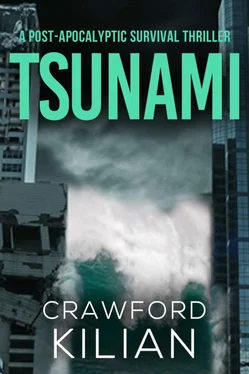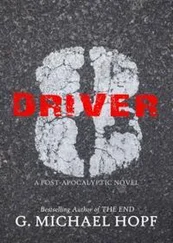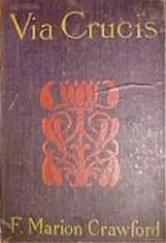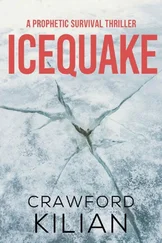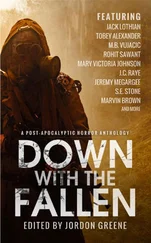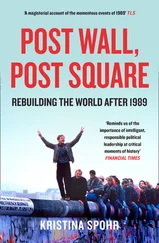“Glad to see ya,” Bill said, punching Don’s arm. “How’s your head feel?”
“Like a hangover. Good to see you guys. Uh — sorry about the sub, Owen.”
“That’s the least of our problems. We’ll just take it out of your pay.” Owen nodded towards the window. “Look.” Just above the wave-chopped eastern horizon, a dark cloud merged into the overcast.
“Is that the city?”
Owen blew his nose. “Yes, that’s the city. We’ve been trying to raise the Institute, but there’s no reply.”
“What we’re picking up from CBers and hams is really bad,” said Bill. “So I’m staying put until the waves are all finished.”
Owen pursed his lips. “We’ve been discussing our options,” he said dryly. “I feel we should get home as soon as possible. Sitting out here is not doing anyone any good.”
“Sorry, Owen.” Bill Murphy’s dark eyes met the chief scientist’s. “We stay put until the waves stop.”
Don eased himself into a chair. He ached, and felt a little seasick. “That could be a long wait, Bill.”
“How come?”
Don seemed to ignore the question. “Owen — was this really from a quake in the Antarctic? Any details?”
“Not much. There was a quake, eight or a little better on the Richter scale, somewhere in West Antarctica. Mount Erebus is erupting too, but that’s all we heard.”
“Look, I don’t know enough to be sure, but these waves could go on for days or weeks.”
“How so?” Owen walked with practised ease across the swaying Moor and took the chair next to Don’s. Bill glanced at his steersman and then joined them.
“I told you my brother’s in the Antarctic. He’s got a theory that a quake down there could start a surge of the ice sheet. That would dump a lot of ice into the ocean, all at once. And if the surge is periodic, we’ll get more tsunamis.”
“We can stay out for two weeks more if we have to,” said Bill.
“Not much point,” said Don. “If the waves are caused by an ice surge, and the surge is periodic, the next series of waves could come at any time. We might as well go in now.”
“Not in this storm,” Bill said. “Wait until morning. It’ll blow itself out by then. And if it hasn’t, at least we’ll be able to see where we’re going.”
“Fair enough,” said Owen. “Don, let’s get you down to the wardroom and feed you something. You must be starving.”
The thought of food made Don feel queasy, but he got to his feet and went out with Owen. He listened only absently to Owen’s talk about the tsunamis and the turbidity current and the need for more biological samples.
The wardroom was hot and smelled of pea soup. Don walked unsteadily to a table and sat down, leaning on his elbows with his hands on his face. It occurred to him that his brother might be dead, far away on the ice. He began to shudder.
Owen handed him a plastic tumbler with two fingers of brandy in it. Don took a small sip and felt a little steadier. He saw that the wardroom was crowded with scientists and technicians, all of them too busy to greet him with more than a nod or wave. Charts had been taped onto bulkheads, showing the California coast in detail. A loudspeaker was linked to the radio shack. The men and women in the wardroom were very quiet as they scrawled lines across the charts based on reports that came over the loud-speaker. A rough picture was emerging.
Tsunamis had travelled up the Gulf of California, between Baja and the Mexican mainland, and had swept over the low-lying Imperial Valley. El Centro and several other farming towns were under water. San Diego and La Jolla had been flooded, but the coast around San Clemente had escaped. Long Beach and Wilmington were in ruins. The waves had bypassed Los Angeles’s western beaches and densely populated shoreline, but from Topanga to Malibu the coast highway and hundreds of houses had disappeared.
The small towns and cities from Santa Barbara to Big Sur were silent. So were Carmel and Monterey. The 500,000-tonne tanker Sitka Carrier , preparing to offload a cargo of diesel fuel and gasoline at Moss Landing, had gone down in Monterey Bay. Santa Cruz, and the north end of Monterey Bay, had been flooded up to three kilometres inland.
Details were clearest about the Bay Area. The waves had destroyed the Golden Gate Bridge and virtually all of the San Francisco waterfront. Seiches in the bay were scouring out the landfill on which thousands of houses had been built. Fires were spreading across San Francisco, Oakland and Tiburon. The huge tank farm in Richmond, storing millions of tonnes of oil and gasoline, had been flooded. Many of the tanks had been breached and were on fire; the northeast corner of the bay was covered with a burning slick. The wind from the west was confining most of it to the Richmond shoreline, but the outgoing tide was drawing the slick towards San Francisco and the Marin shoreline.
A chlorine spill in Oakland looked really bad. Two policemen in Piedmont had reported seeing a greenish haze spreading across the freeway towards the hills on the east. That meant that scores of thousands of people in the path of the chlorine cloud were almost certainly dead.
North of California, the waves had done relatively little damage on the steep, thinly populated coast. A ham operator relayed a report from Oregon that several fishing ports had been seriously hit. No news had come from Washington, British Columbia or Alaska.
“Pretty goddamned depressing,” said Owen. “It’ll be even worse when we get in and people start looking for their families.”
“Yes.” Don knew that Owen was divorced; his wife and two daughters lived in Chicago now.
“Kirstie should be okay.”
“God, Owen, I hope so. She was supposed to be in the city today, at a conference of climatologists. She could be fine or she could be dead.”
“She’ll be fine. I’m certain of it. But I’m worried as hell about all the people at PIO, right on the waterfront.”
“I’ll bet they got out in time,” said Don. “They’re plugged right into the Hilo tsunami alert system, so they’d have known as soon as anyone. They would have moved fast.”
Owen nodded.
“Even if the Institute is wrecked,” Don went on, “we’ll be back in business right away. There’ll be a hell of a lot to do.”
“I know. But we may be way down the priorities list. Think about the economic impact of all this, coming on top of a depression. The government will be scraping around for money just to pay its own people, let alone us. The insurance companies will be wrecked, the banks will start failing — can you imagine how many mortgaged houses must have been smashed into kindling today?”
“And all the computers have been haywire for months,” Don added. “Still, they’ll have to do something. They can’t just let everything fall apart.”
* * *
Ultramarine hove to a few kilometres northwest of the Golden Gate and waited for sunrise. Don slept for a few hours and woke gritty-eyed and sluggish. His head hurt. The air smelled sour and strange.
The lights were on in the wardroom, but he found no one there. Don got a cup of coffee and took it with him to the bridge.
Bill Murphy was there, red-eyed and hoarse from staying up all night. Owen, by contrast, was freshly showered and shaved, and seemed relaxed and casual. On deck below, most of the rest of the crew and scientists were lined up along the port rail, looking at the Marin coast.
“My God,” said Don.
The sea was strewn with wreckage: lumber, trees, an almost-intact shingle roof, a capsized fishing boat, tangled masses of yellow nylon rope, carcasses of cows and sheep, a man’s naked body caught in the branches of a floating oak. Here and there, the flotsam was thick enough to form islets. Oil slicks gleamed in long streaks across the choppy grey water. Despite the westerly wind, the air was sour and heavy.
Читать дальше
